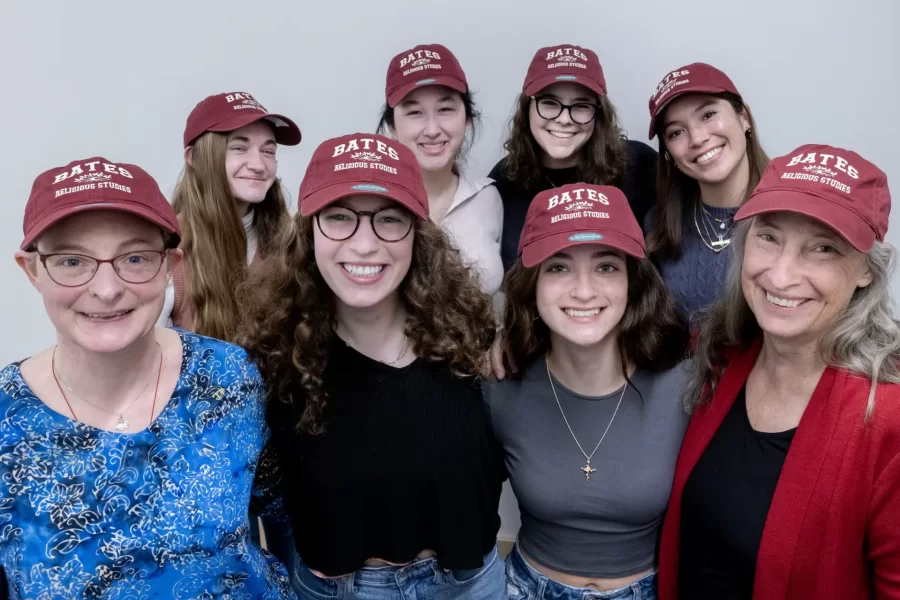Religious Studies is a humanistic and social-scientific discipline that provides windows onto a wide range of cultural phenomena and contemporary social questions.
Have you ever wondered about the meaning of life? Of death? Love? Compassion? Commitment? Welcome to Religious Studies. The academic study of religion provides an opportunity to explore how different cultures – throughout history and in the present – grapple with these enduring questions and many others.
Have you ever noticed how often religion appears in the headlines? How people point to religion to justify their actions and challenge those of others? How religion seems to motivate both violence and nonviolence, both destruction and protection of life? The academic study of religion provides critical tools for analyzing how powerful ideologies, institutions, and values of the past continue today to animate not only “religious” people and societies but even the most “modern” and “secular” ones, as well.
Have you ever wanted to harness your curiosity about the world to your passion for making a meaningful difference through whatever work you choose to do? The academic study of religion examines how people make meaning. It also provides language, insights, and conceptual frameworks for understanding and naming your own experience – “religious” or not, “spiritual” or not, atheistic, agnostic, or otherwise – and for communicating and acting on your own deepest sense of meaning and purpose.
And have you ever heard from Bates alums about how, in their careers, they rely a great deal on the critical thinking skills they honed and the broad perspectives they developed in pursuing a liberal arts education? Religious Studies provides skills for a lifetime. It is a great place to weave together and integrate a liberal arts education that includes the social sciences, humanities, natural sciences, and community-engaged learning. We cross list with a greater variety of departments and programs than any other department – while providing the same powerful opportunities for developing your capacities to analyze, communicate, create, collaborate, and continue to learn everywhere you want to go in life. In the words of Bates’ mission statement, the Religious Studies curriculum prepares “leaders sustained by a love of learning and a commitment to responsible stewardship of the wider world.”
What are you waiting for?
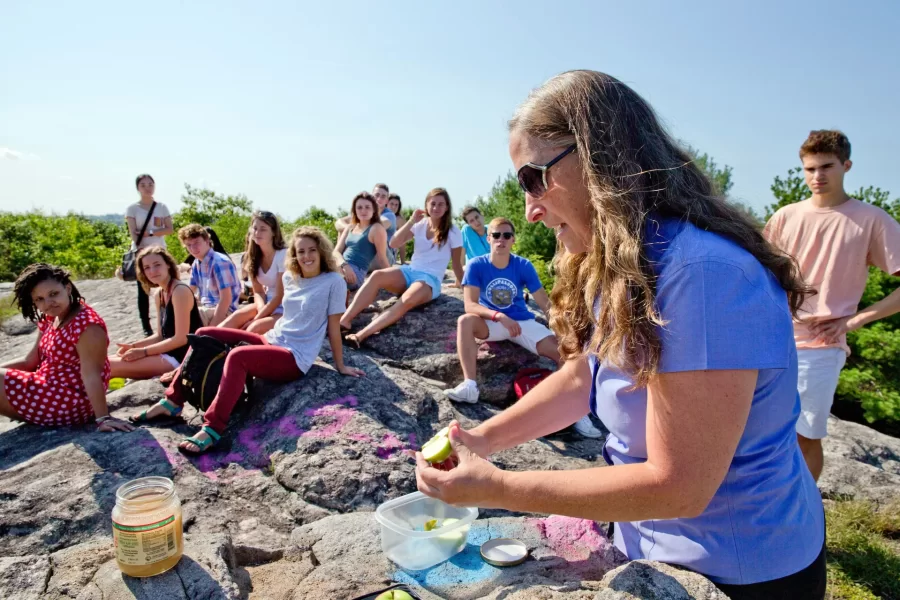
Associate Professor of Religious Studies Cynthia Baker slices an apple for students in her first-year seminar, “The Nature of Spirituality.” She asked them to dip the fruit into honey as an expression of hope for a sweet school year. The ritual is inspired by an age-old Jewish New Year tradition. Baker and her students had just climbed Mount David, a 389-foot granite outcropping near campus, where they followed the apples and honey with a discussion of “Nature,” a Ralph Waldo Emerson essay published in 1836. Today, all members of the Class of 2019 met with their first-year seminar instructors for class discussion and academic advising
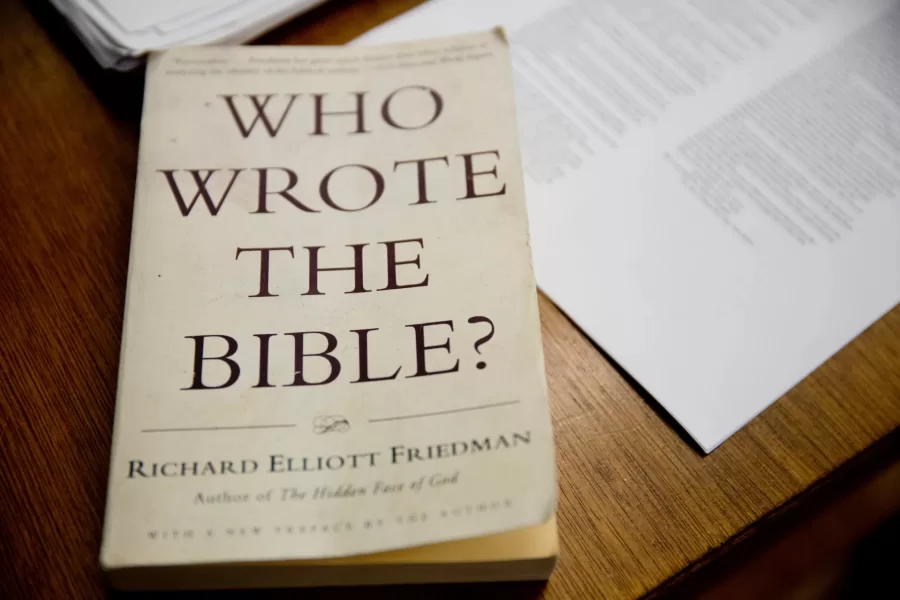
Associate Professor of Religious Studies teaches CMRE 235 Introduction to Ancient Hebrew Bible in Pettigrew 200.
This course is part of the Purposeful Work Infusion Project which exposes Bates students to worlds of work, questions of identity and purpose, and reflection on decision-making about work through curricular and co-curricular infusions.
Curricular infusions occur in “Purposeful Work Infusion courses,” which bridge the gap between course content and “work” (broadly defined).
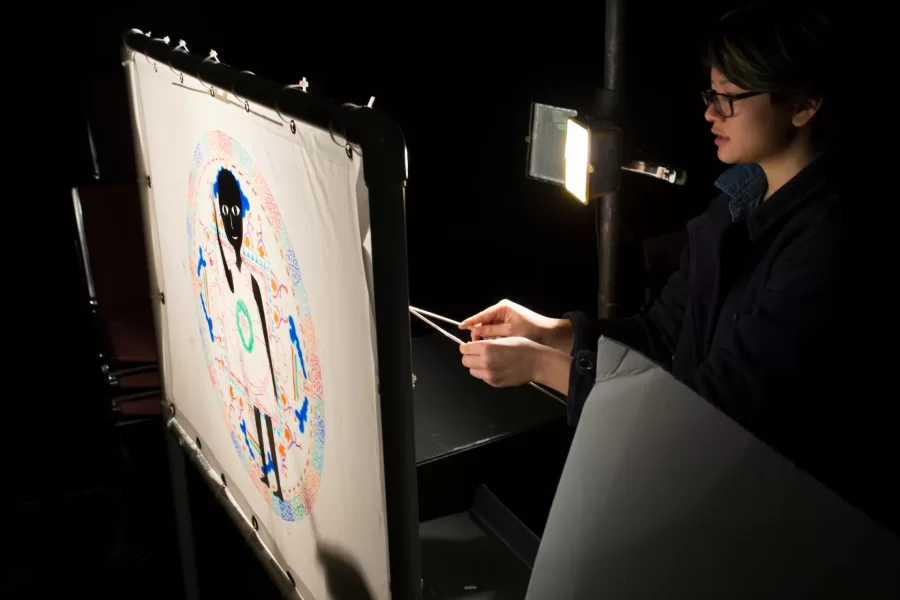
Keila Ching ’18 of Honolulu, Hawaii, a student in “Epics of Asia” taught by Assistant Professor of Religious Studies Alison Melnick, performs their final project in the Black Box Theater. For their finals, the students were asked to reinterpret an epic myth in a format of their choice, and Ching opted to create a shadow puppet performance featuring a prologue to the Tibetan myth of Gesar of Ling
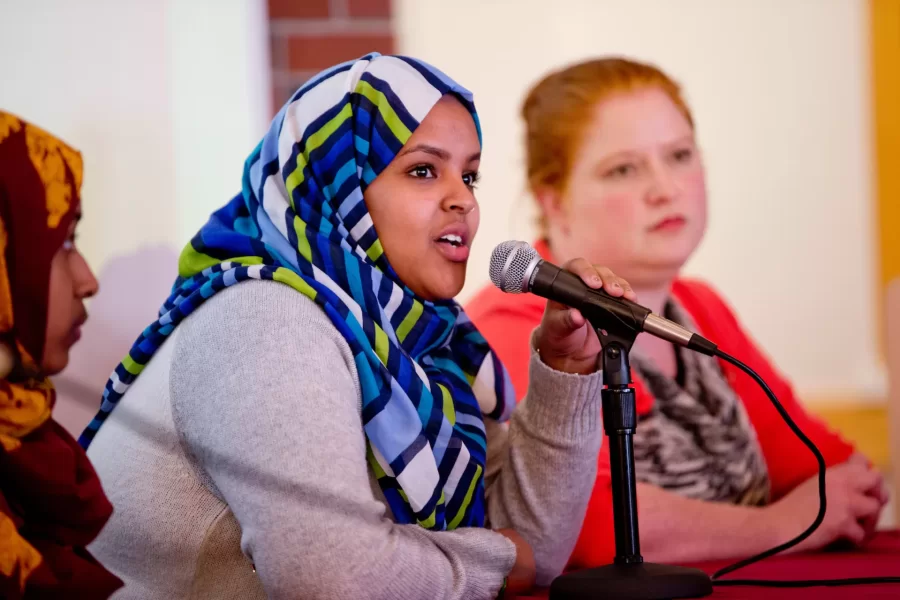
What do you want to know about Islam?
The below panelists will be answering your questions on Tuesday, April 7.
Panel Details:
Tuesday, April 7 at 5:30 pm
Benjamin Mays Center
95 Russell St, Bates College
Panelists:
Megan Goodwin, Mellon Postdoctoral Fellow, Bates Religious Studies Faculty
Aliya Mohamed, Lewiston-Auburn resident
Rakiya Mohamed, Bates first-year from Auburn
Muna Mohamed, Senior class president, Lewiston High School
Libby Nutting, Mellon Postdoctoral Fellow, Bates Lecturer in History and Classical/Medieval Studies
Awais Rana, Bates senior from Pakistan, co-president of the Bates Muslim Student Association
Also, two Lewiston guest are, from left, Saleh Mahamud, imam of Lewiston-Auburn; Hassan Adan P’15 of Lewiston
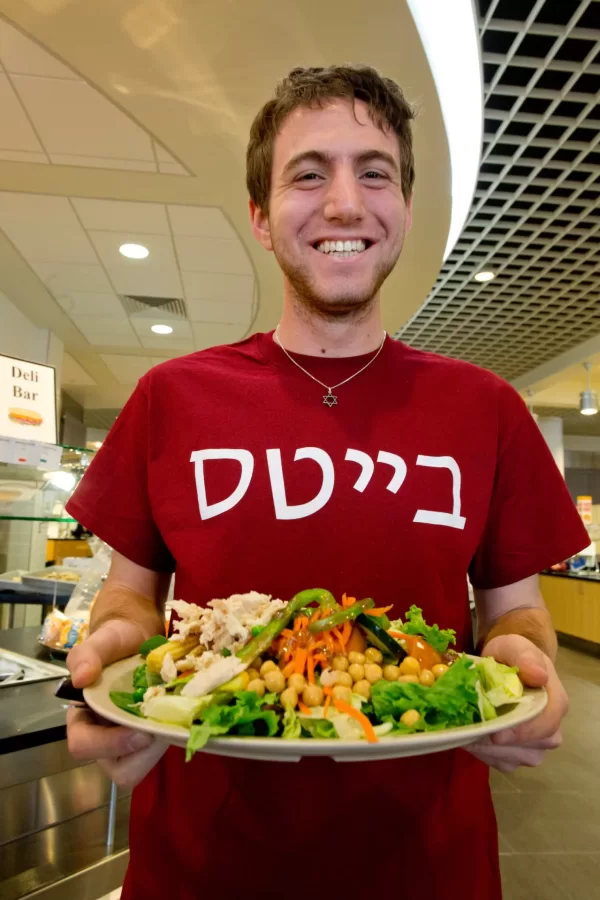
Students eat lunch in Commons.
Alex Tritell ’16 from Bethesda, Md., a religious studies major: I’m eating a salad because it’s healthy and filling and usually tastes good as well. It’s the combination of everything that really pulls it together. His food philosophy: Eat healthy, eat a lot.
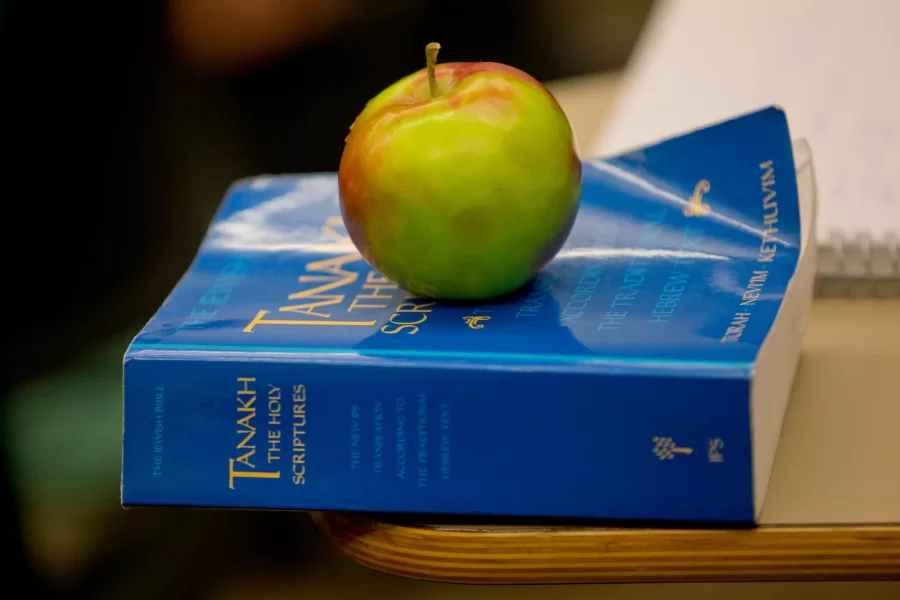
Associate Professor of Religious Studies Cynthia Baker teaches CMRE 235 “Introduction to the Ancient Hebrew Bible” in Pettigrew 200.
This course is part of the Purposeful Work Infusion Project which exposes Bates students to worlds of work, questions of identity and purpose, and reflection on decision-making about work through curricular and co-curricular infusions.
Curricular infusions occur in “Purposeful Work Infusion courses,” which bridge the gap between course content and “work” (broadly defined).
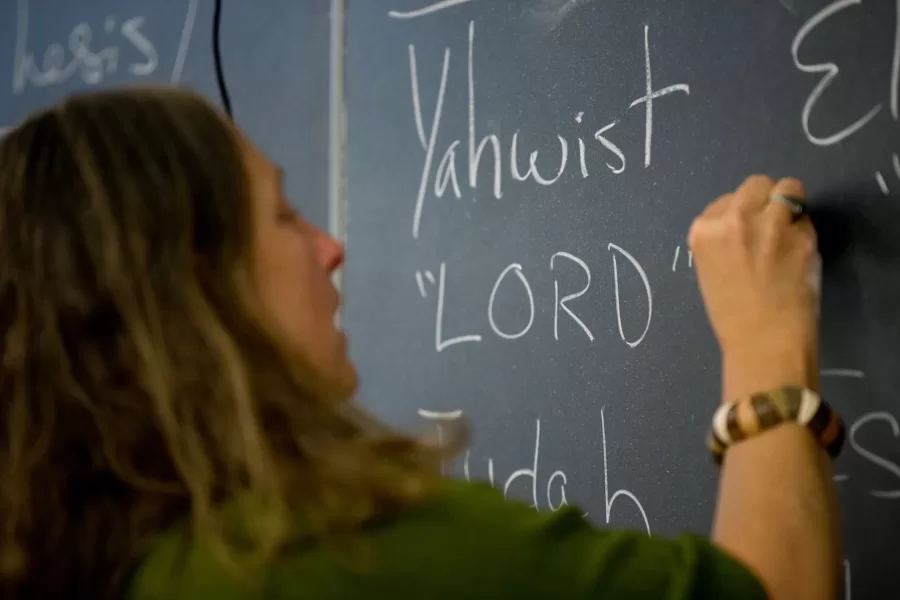
Associate Professor of Religious Studies Cynthia Baker teaches CMRE 235 “Introduction to the Ancient Hebrew Bible” in Pettigrew 200.
This course is part of the Purposeful Work Infusion Project which exposes Bates students to worlds of work, questions of identity and purpose, and reflection on decision-making about work through curricular and co-curricular infusions.
Curricular infusions occur in “Purposeful Work Infusion courses,” which bridge the gap between course content and “work” (broadly defined).
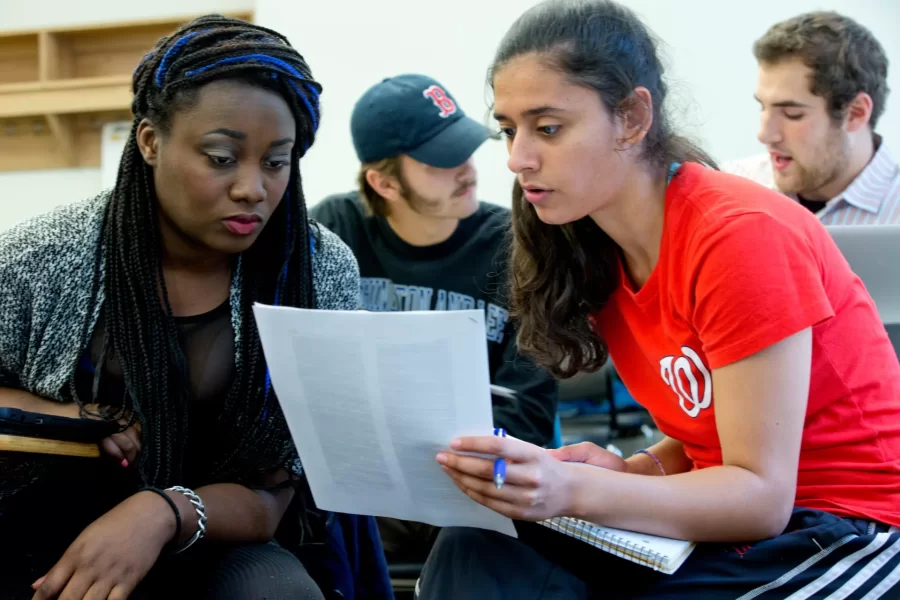
Associate Professor of Religious Studies teaches CMRE 235 Introduction to Ancient Hebrew Bible in Pettigrew 200.
This course is part of the Purposeful Work Infusion Project which exposes Bates students to worlds of work, questions of identity and purpose, and reflection on decision-making about work through curricular and co-curricular infusions.
Curricular infusions occur in “Purposeful Work Infusion courses,” which bridge the gap between course content and “work” (broadly defined).








